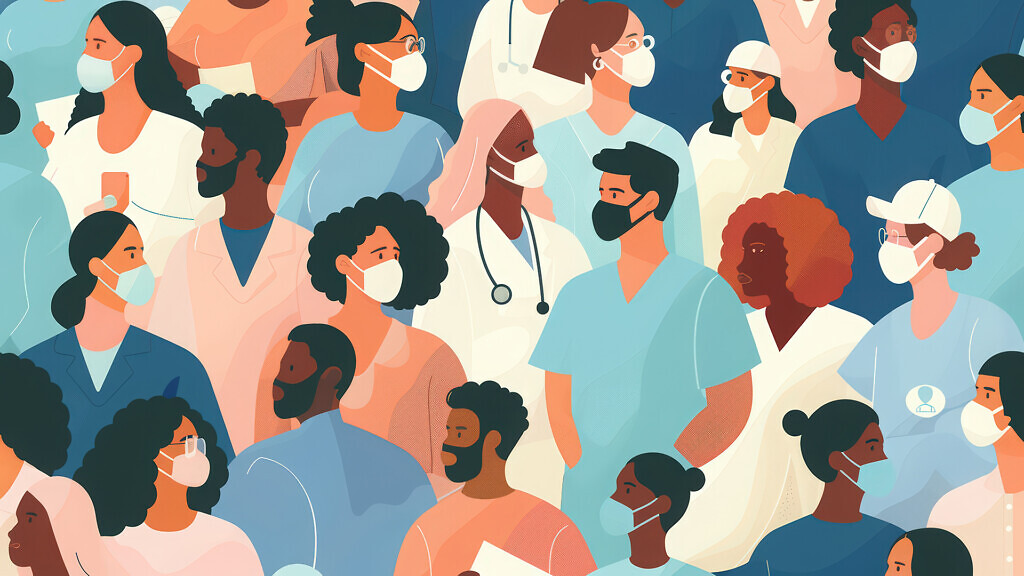The disparities in healthcare in Britain are highlighted in a new report from the UK Health Security Agency and an inquiry launched by the Digital Poverty Alliance.
The disparities in healthcare in Britain come to the fore again as two organisations highlight health inequalities in the country.
A new report from the UK Health Security Agency (UKHSA) highlights how health inequalities in England are caused by infectious diseases, as well as environmental health hazards.
It found that people living in the 20% most deprived areas in England are almost twice as likely to be admitted to hospital due to infectious diseases than the least deprived and experience higher emergency hospital admission rates.
People living in deprived communities experience twice as high admissions for respiratory diseases in general and up to seven times higher specifically for tuberculosis and six times higher for measles; twice as high admissions for invasive infections in general, and up to 2.5 times higher specifically for sepsis; and admissions 1.7 times higher for gastrointestinal diseases.
Avoidable, pervasive and preventable
This all comes at a cost. As well as the costs to the social, physical and mental health of communities, UKHSA estimates that inequalities in emergency infectious disease hospital admissions cost the NHS between £970 million and £1.5 billion in 2022-23.
“The report reveals some stark facts on the state of inequalities in health security faced by some people, in particular those living in the most deprived communities and certain areas of the country, some ethnic groups, as well as excluded groups such as those experiencing homelessness,” said Leonora Weil, deputy director for health equity and inclusion at UKHSA.
She went on to say that these inequalities are “avoidable, pervasive and preventable” and recommended a four-part approach to tackling the issue.
First, building an understanding of the people and places that experience these inequalities; working with local and national systems to support integrated, tailored and accessible interventions; working in partnership across national and local government, the NHS, the voluntary, faith and charity sector and communities themselves; and equipping the UKHSA workforce with the capacity and capability to address inequalities in health protection.
“We need to build on these insights,” said Weil.

Digital exclusion and health inequality
At the same time, the charity the Digital Poverty Alliance (DPA), has launched an inquiry into digital exclusion at a time when healthcare is increasingly moving online.
“Throughout my career, I have seen the impact that inequality has on patients. The pace of technological change must balance efficiency and convenience with ensuring that some of the most vulnerable in society are supported – and not left behind,” said British cardiac surgeon and honorary professor at the Swansea University Medical School Farah Bhatti who will chair the inquiry.
The DPA’s research will focus on digitally excluded groups, notably older adults, rural communities and people for whom English is a second language with the view to making sure that the move from analogue to digital doesn’t widen existing health disparities. Findings from this inquiry will inform recommendations for a more inclusive digital healthcare future.
The inquiry will focus on communities disproportionately impacted by digital inequality, including older adults, the vast majority (around nine in ten) of whom have low or very low digital skills; rural residents, with just 19.4% living within a 20-minute walk of a GP; and people for whom English is a second language.
These groups often face additional challenges when navigating digital platforms and frequently overlap with those already experiencing significant health inequalities, compounding the urgency of addressing digital exclusion in healthcare.
“With 43% of working-age adults in the UK struggling to understand health information, and that number rising to 61% when numeracy is factored in, we cannot afford to overlook the connection between digital exclusion and health inequality,” said Elizabeth Anderson, chief executive of the Digital Poverty Alliance.
Running over the coming months, the inquiry will include both quantitative research and lived-experience testimony from patients, clinicians, and frontline healthcare providers across the UK.



